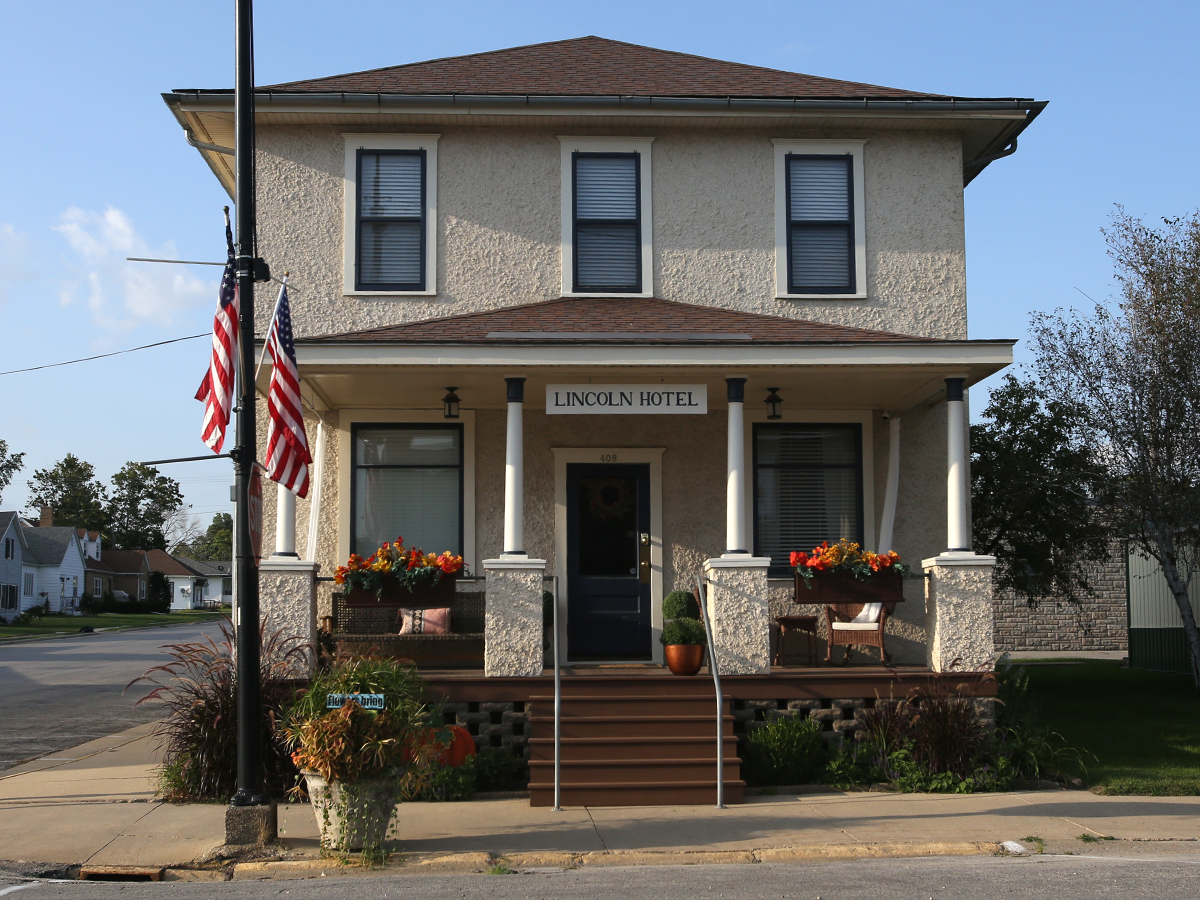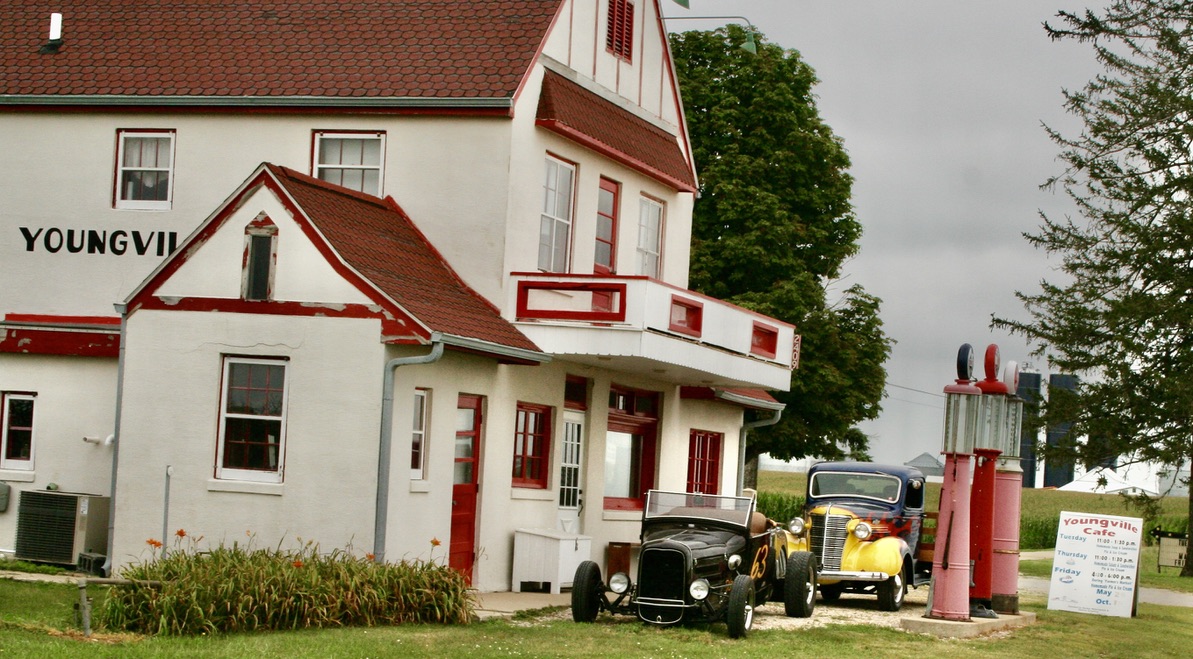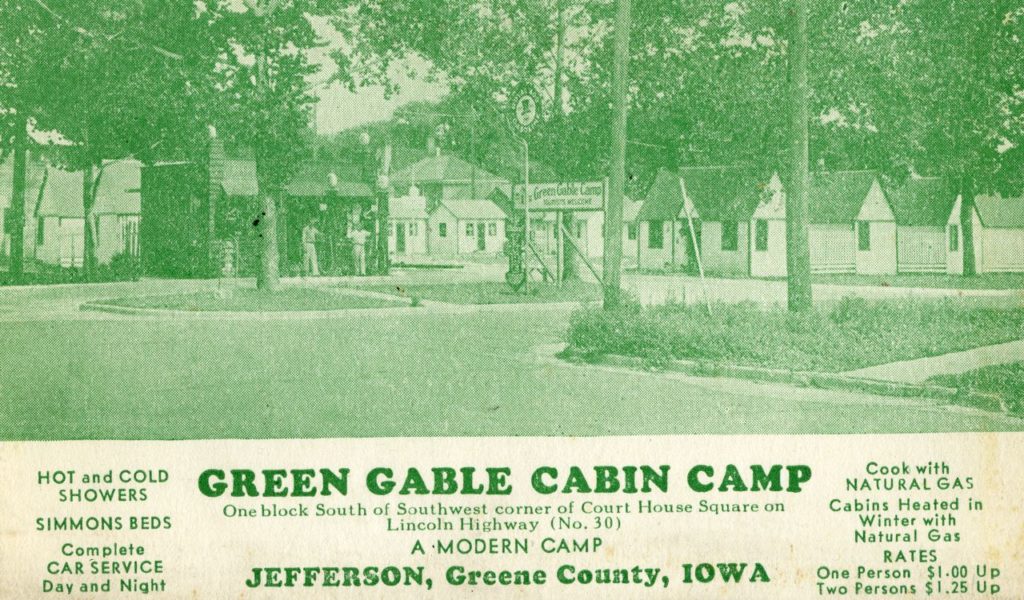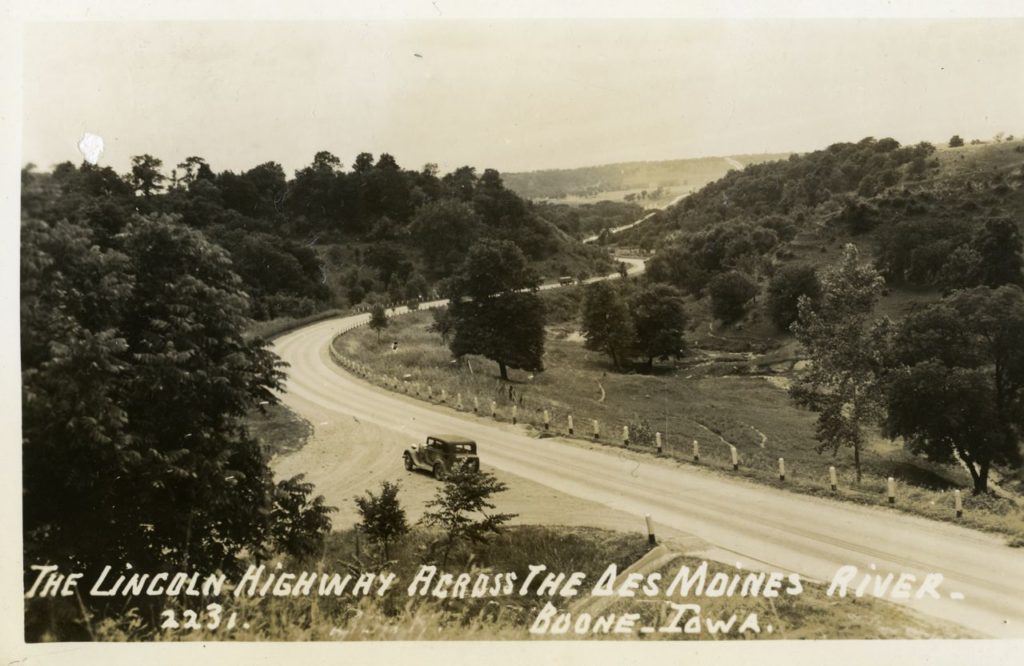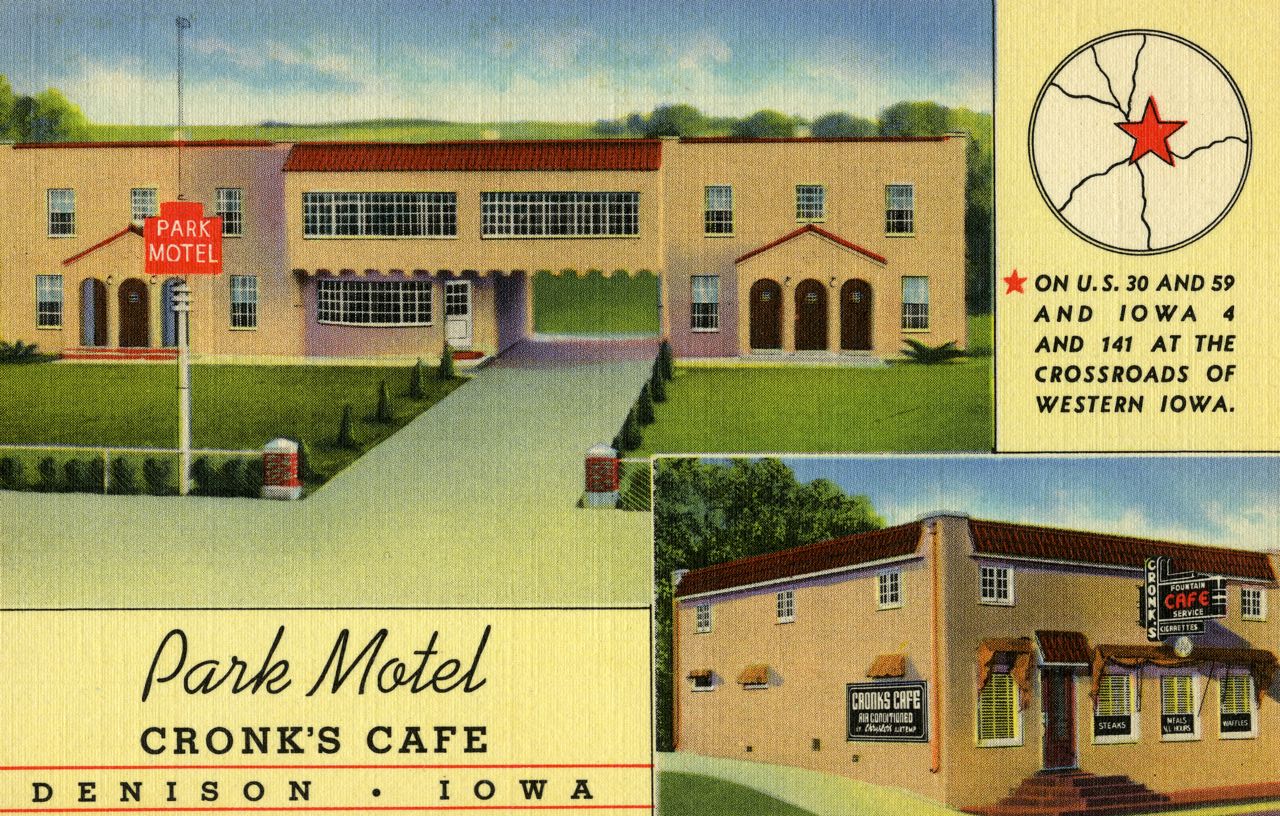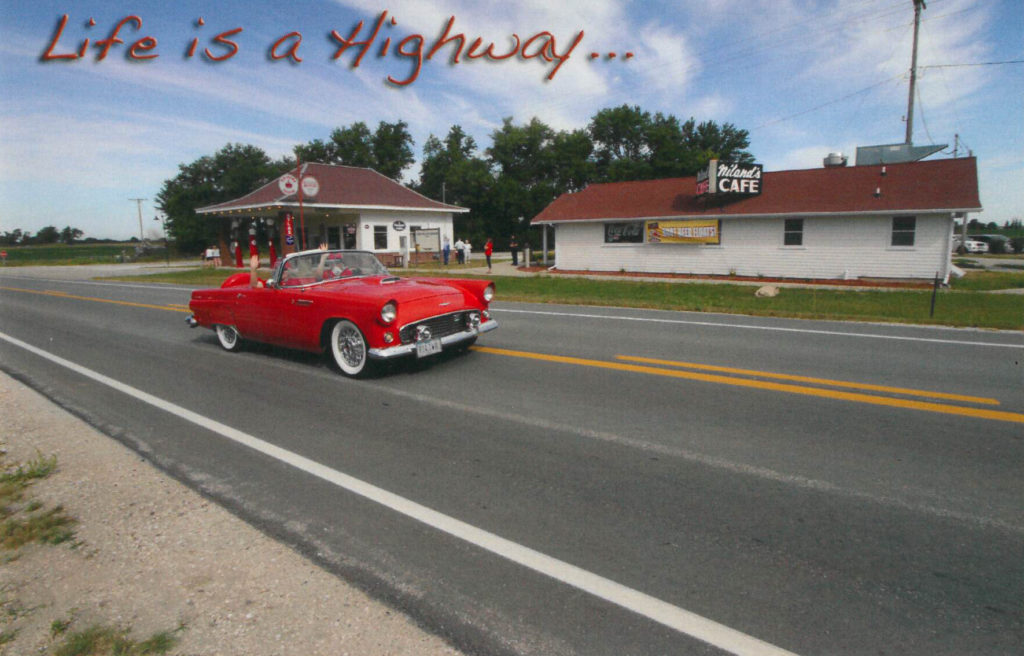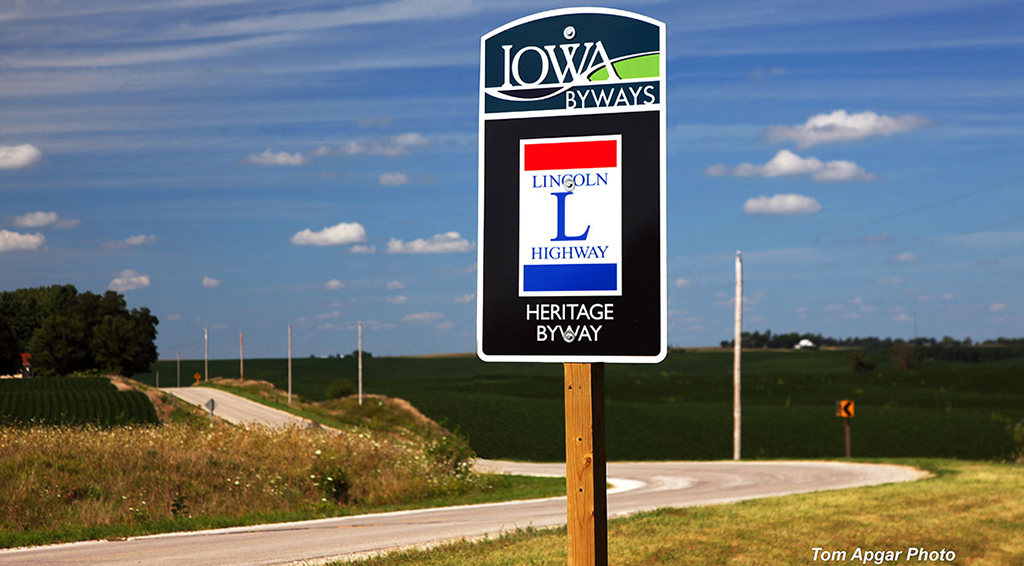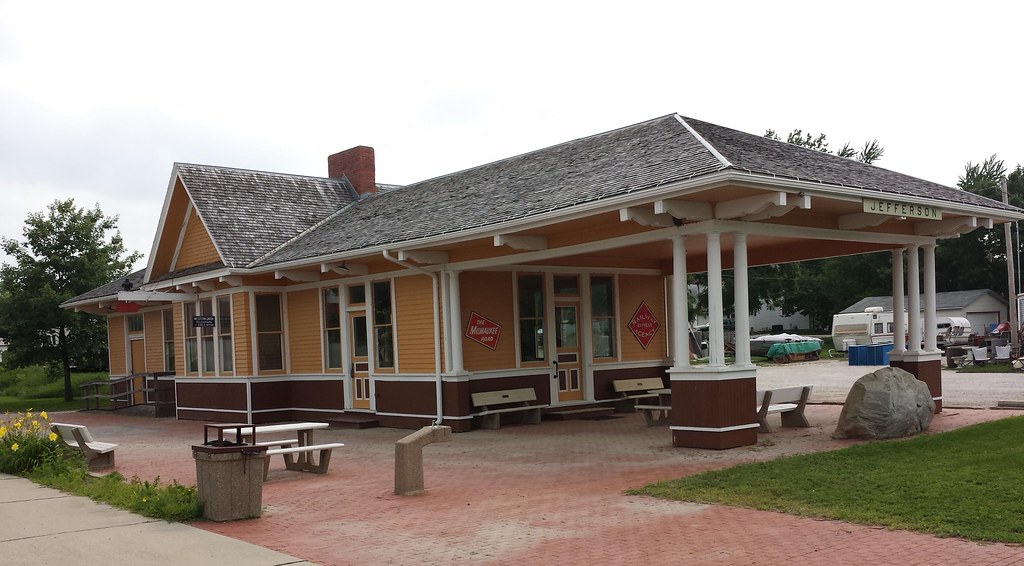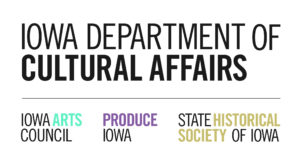Lincoln Highway Historic Property Survey
Lincoln Highway Historic Property Survey
Dear Lincoln Highway Community,
You are invited to participate in a first-of-its-kind survey assessing the preservation needs of historical properties listed on the National Register of Historic Places within five miles of the Lincoln Highway National Heritage Byway in Iowa. This needs assessment is being undertaken by the Ames-based nonprofit Prairie Rivers of Iowa (PRI) with funding from the Iowa Department of Cultural Affairs and the State Historical Society of Iowa.
WHY IS THIS SURVEY BEING DONE?
Properties listed on the National Register of Historic Places are important parts of our cultural heritage. Keeping them in good condition for future generations while preserving the features that make them historic can be challenging and expensive. For example, aging buildings need basics such as a functioning roof and HVAC system, and many could benefit from improved energy efficiency. Federal and state tax credit programs or grants may be available to offset the costs of this and other kinds of maintenance work. Knowing where the needs are, Prairie Rivers of Iowa will be more effective in providing assistance to property owners who request it. Experts in historic construction trades may be beneficial to assist with this work as well.
The Lincoln Hotel, Lowden
Lowden’s historic Lincoln Hotel can be found at the junction of Old Lincoln Highway and Hoover Highway and has served travelers along the Lincoln Highway since 1915. In 1996 it was listed on the National Register of Historic Places and won the residential Preservation At Its Best Award from the Iowa Historic Preservation Alliance.
The Youngville Café, Watkins
First opened in 1931, Youngville Station was named after the Young family who built it. A major stop for travelers along highway, it included a Skelly gas station, a diner, and cabins in back. Listed on the National Register of Historic Places in 2007, the café is open for lunch on a limited schedule in the summers and features homemade pie as a major draw.
Information from this survey will help us to assess the greatest preservation needs along the Lincoln Highway in order to address them. Our long-term objective is to improve the historical integrity of properties in the Lincoln Highway corridor, and we will provide information about preservation resources to participating property owners who want it after the research is completed in 2024.
HOW CAN THE SURVEY BE COMPLETED?
There are several ways to take the survey. Please choose from the following:
- Online: Use the link at the top of the page to take the survey. (Estimated time to complete: 4 minutes)
- Mail: Request a printed survey to be sent and returned by mail. Contact Shellie Orngard at sorngard@prrcd.org or by phone at (515) 232-0048.
- Phone: Request a phone survey. Contact Shellie Orngard at sorngard@prrcd.org or by phone at (515) 232-0048.
WHY IS THE LINCOLN HIGHWAY NATIONAL HERITAGE BYWAY IMPORTANT?
Established in 1913, the Lincoln Highway was the first coast-to-coast improved highway in the country and played an important role in local and national development. In Iowa it runs through 13 counties and 43 communities from the city of Clinton on the Mississippi River to Council Bluffs on the Missouri. As automobile travel grew in the 1910s and 20s, the Lincoln Highway brought unparalleled local community and business development and tourism.
In February 2021, the U.S. Federal Highway Administration designated the Lincoln Highway Heritage Byway a National Scenic Byway. It is our hope that by preserving properties like yours, we can better share the unique stories of this historic road. Thank you for your consideration and assistance with this project. Please feel free to contact us with your questions. We look forward to hearing from you.
Sincerely,
Prairie Rivers of Iowa
PS.: As a “thank-you gift,” each person who completes the survey can receive four full-color vintage-style postcards of historical properties and scenes along Iowa’s Lincoln Highway while supplies last.
Who We Are
Prairie Rivers of Iowa (PRI) contracts with the Iowa Department of Transportation (IDOT) to manage the Lincoln Highway National Heritage Byway. The Federal Highway Administration (FHWA), which administers the National Scenic Byways Program, identifies six intrinsic qualities. The Lincoln Highway is recognized as for its “historic” intrinsic qualities and thus is referred to as a “Heritage” Byway.
Historic Intrinsic Qualities
“Historic qualities are legacies of the past associated with visible parts of the landscape, whether natural or built. Places of historic significance educate visitors and stir an appreciation for the past. Historic qualities reflect people’s actions and may include buildings, settlement patterns, and other examples of human activity. Historic features can be inventoried, mapped, and interpreted. They demonstrate an integrity of location, design, setting, material, workmanship, feeling, and association.” — National Scenic Byway Foundation
The Iowa Lincoln Highway National Heritage Byway Road Sign
The Lincoln Highway starts in Times Square in New York City and ends in Golden Gate Park in San Francisco. In Iowa it passes through 13 counties and 43 towns along the way.
Chicago, Milwaukee & St. Paul Train Depot, Jefferson
Listed on the National Register of Historic Places in 1994, the train depot in Jefferson is located along the first paved section of the Lincoln Highway in Iowa. It remains a relatively unaltered example of the standard-plan wooden depots the Milwaukee Railroad erected in the early twentieth century.
How Others See the Importance of this Project
“The Lincoln Highway tells a uniquely American story of settlement and recreational travel during the heady period of expanding automobile ownership in the early 20th century. Yet despite its significance, historical resources along its 3,000 miles continue to be altered, fall into disrepair, or are gradually sacrificed to new development. With this, we lose not only an important tangible aspect of our history, but a potential source of heritage tourism activity and economic development. . . . [This research will allow Prairie Rivers of Iowa] to actively encourage the use of federal and state tax incentive for private rehabilitation efforts and preserve the built heritage that remains.”
— Dr. Ted Grevstad-Nordbrock, Assistant Professor of Historic Preservation, Iowa State University, Project Consultant
This project is funded in part by a Historical Resource Development Program (HRDP) grant from the Iowa Department of Cultural Affairs.

